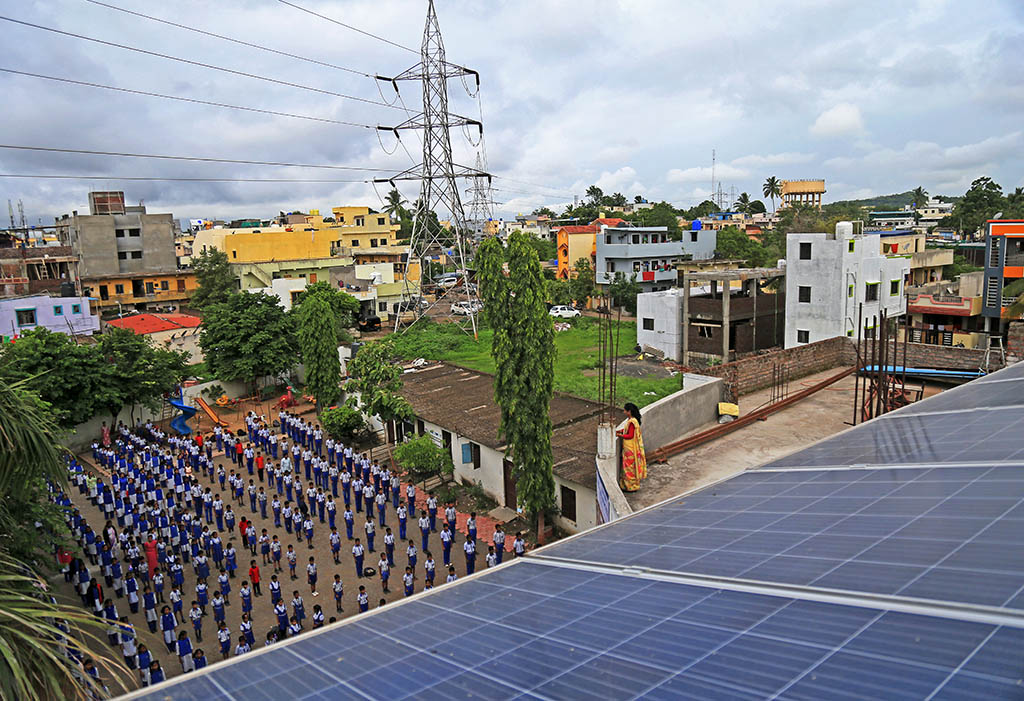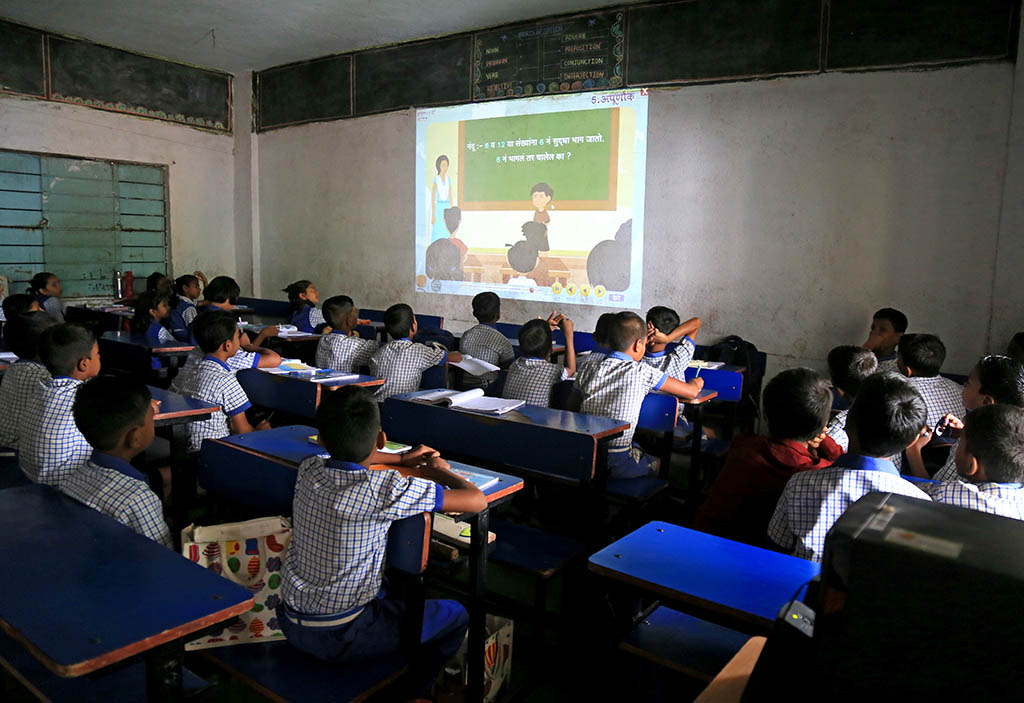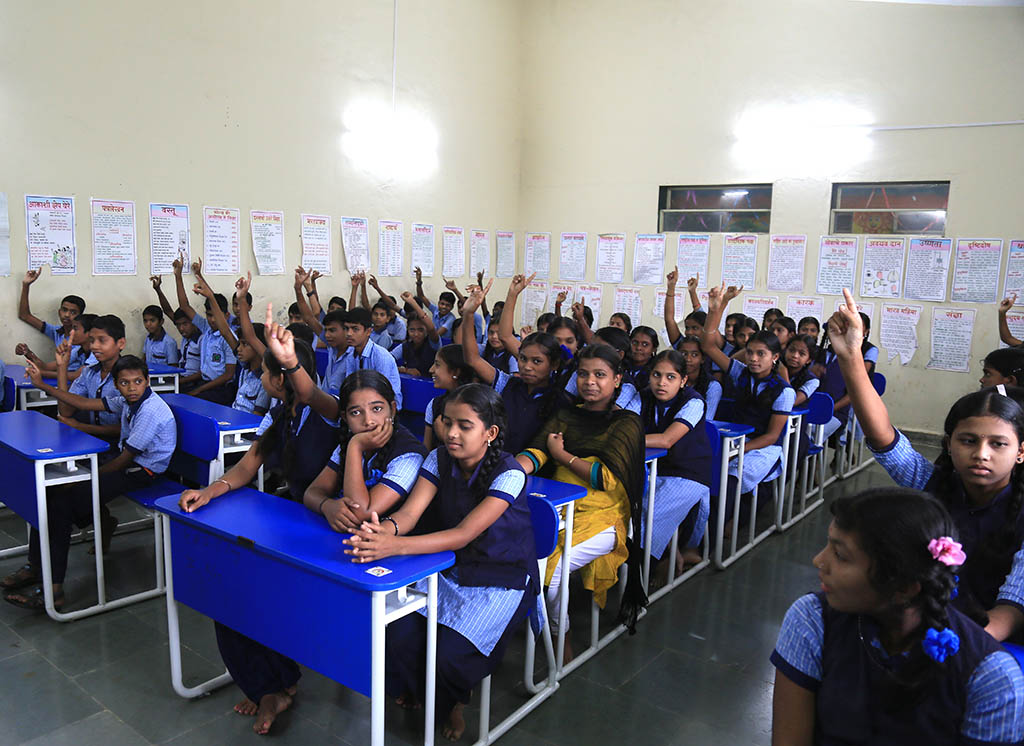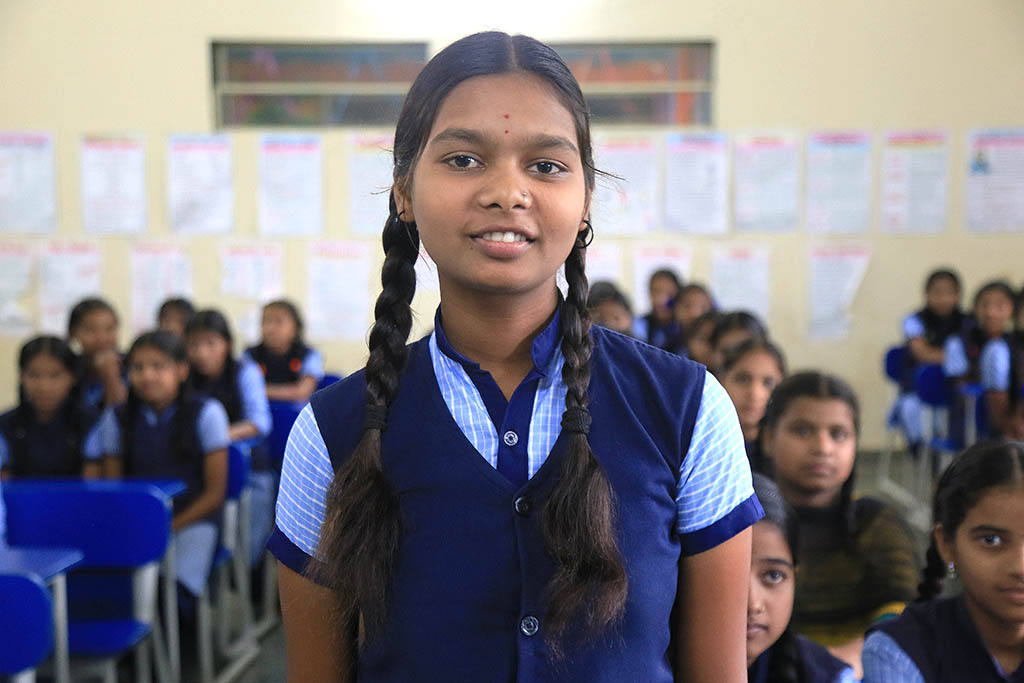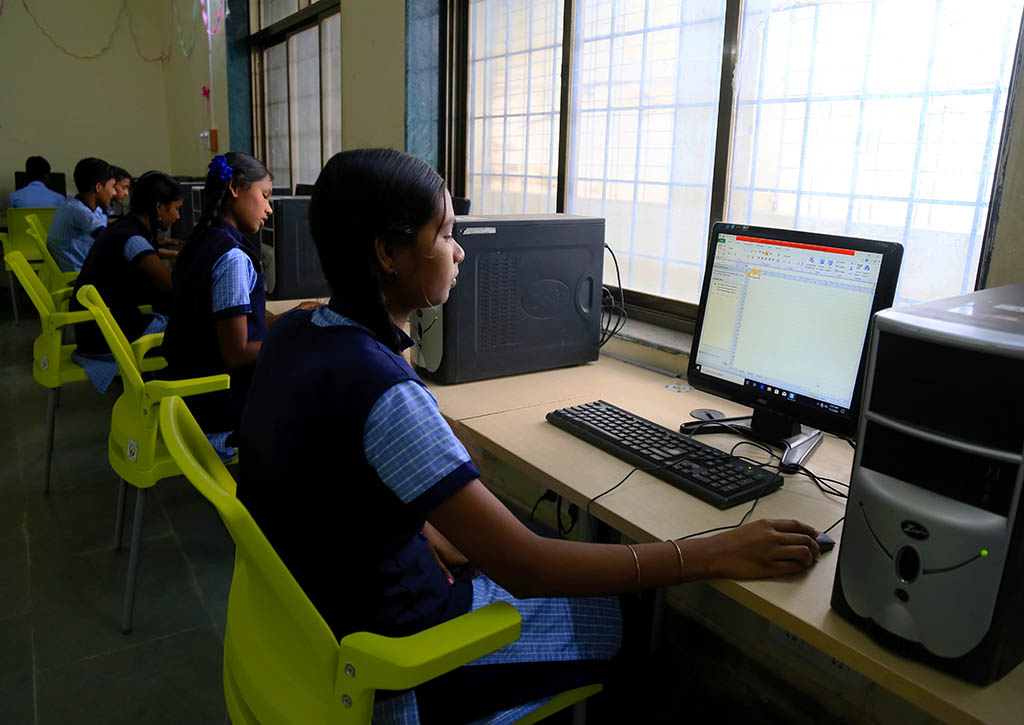For the students of Tokawade Ashram School, solar means safety. The residential school located in the remote village of Tokawade, Khed block in Maharashtra is now one of the very few schools in the region which is fully powered by solar energy. The installation of solar panels has equipped the school with better infrastructure and given the students a better learning environment with uninterrupted access to basic amenities like lights, fans, and computers throughout the day. It stands as a beacon of sustainable energy, dedicated to providing quality education to nearly 349 students majority of whom belong to various tribal groups like Mahadev Koli, Katkari, and Thakar tribe – few of the most disadvantaged socio-economic groups.
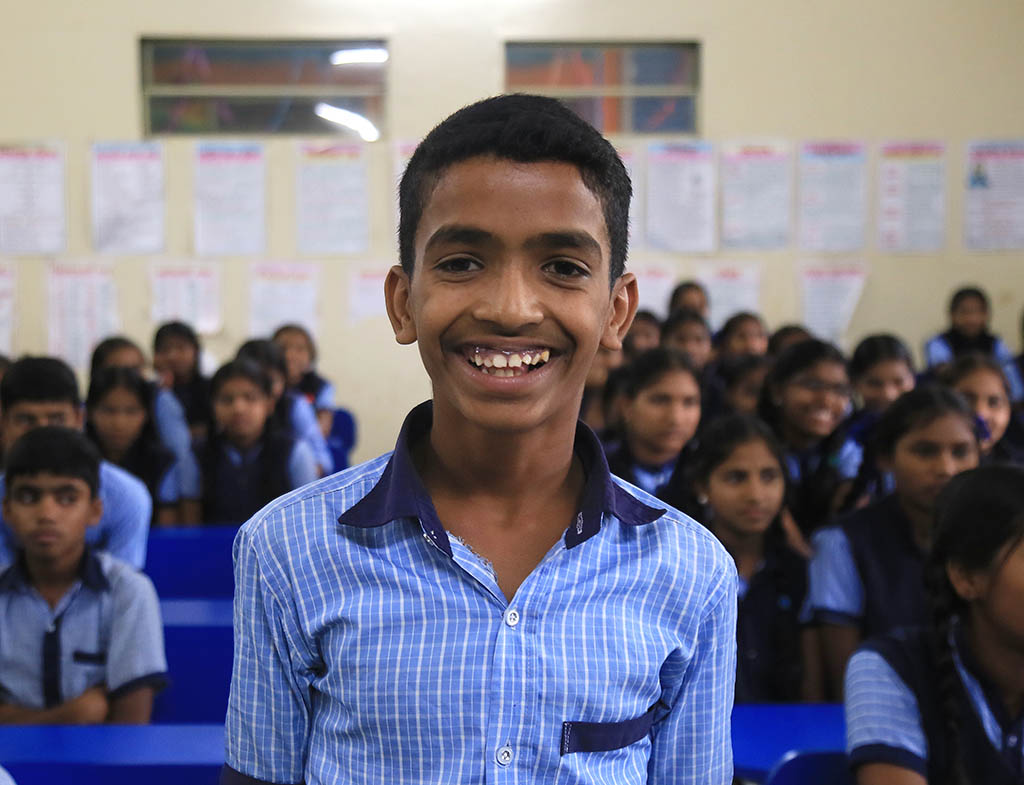
Figure 1: Ketan Phodase, class 10, shares his excitement of well-lit classrooms and corridors. Installation of off-grid solar panels by Habitat for Humanity India and Atos Prayas Foundation has facilitated uninterrupted power supply in the school.
The residential school was no stranger to the challenges of life in a remote village. Frequent power outages, especially during the monsoon season, disrupted the students' education and daily routines. Earlier, the school would face power cuts frequently, often for hours. The situation was severe during the monsoon as the village experiences heavy rainfall every season. In addition to that the immediate impact was felt on the overall well-being of the students. For instance, no power would mean students would have to bathe in cold water. They would catch cold, cough and fall ill. Almost every week, the school staff had to take at least two to three children to the doctor. This resulted in students missing their classes too.
“Whenever it rained, there would be power outages. We had to spend our nights with candles that barely lit the corridors” says Ketan Phodase, a student of class 10.
Habitat for Humanity India has partnered with Atos Prayas Foundation in facilitating the installation of Off-Grid Solar Panels in Zilla Parishad schools located in Khed block of Maharashtra. The project encourages schools to use renewable sources of energy enabling these educational institutions to maintain a consistent and self-sufficient power supply, free from reliance on the local grid. The Zilla Parishad Primary School at Tokawade stands as an example among the 24 schools that have collaborated with Habitat India and Atos Prayas Foundation to achieve complete energy self-sufficiency through renewable means.
“Now that we have access to electricity throughout the day, we can focus on our studies even after sunset,” Ketan further adds.
Figure 2: Students of Tokawade Ashram School engaged in their IT lab. After the installation of the Off-Grid Solar panels, the school has uninterrupted access to electricity enabling the students to attend computer classes regularly.
Now that the solar panels are installed, there is access to hot water, reducing the number of students falling sick regularly. In addition to this, now the school corridors are now lit even through the night. Due to this, the chances of encountering snakes, reptiles and other wild animals have become rare.
“The installation of solar panels has plummeted the electricity bills from INR 30,000 to just INR 2000 per month. However, the greatest impact of solar power was seen in June 2023 when cyclone Biparjoy hit the western coast of India. In June 2020, cyclone Nisarga caused devastation on the western coast of Maharashtra. At that time, the entire village, including the school, saw a blackout for nearly a month. The students had to study under candlelight and had to face huge hardships in their day-to-day lives. It was a horrifying experience. This time, when the cyclone came, we were better prepared. The solar panels were installed two months before the monsoon. The school stood strong without any power outages or blackouts this year despite the threat of the cyclone.” says Gautam Bhagat, Teacher, Tokawade Ashram School.
The students of Tokawade Ashram School experience a safe and better learning environment now that the school has an uninterrupted power supply.


